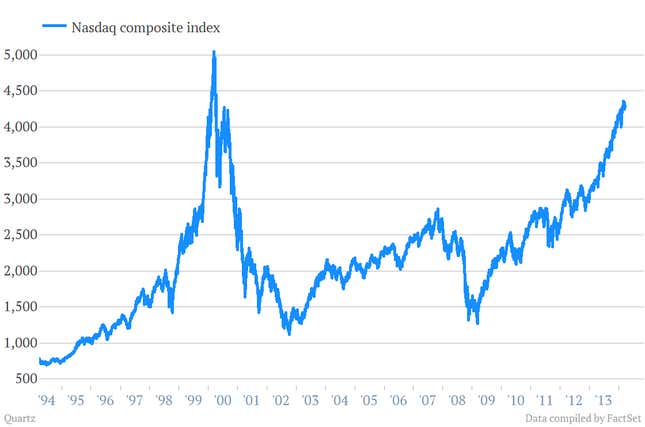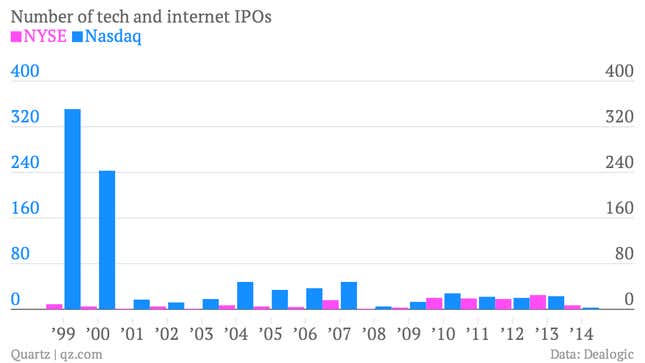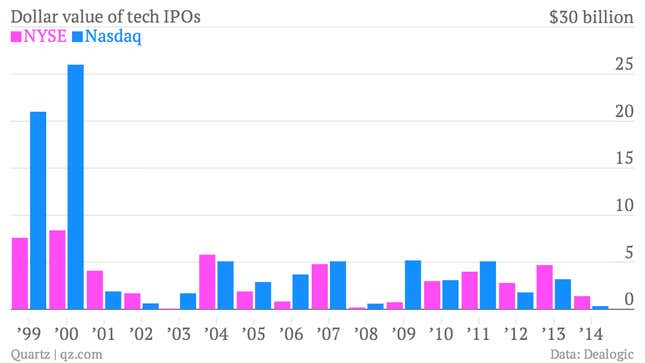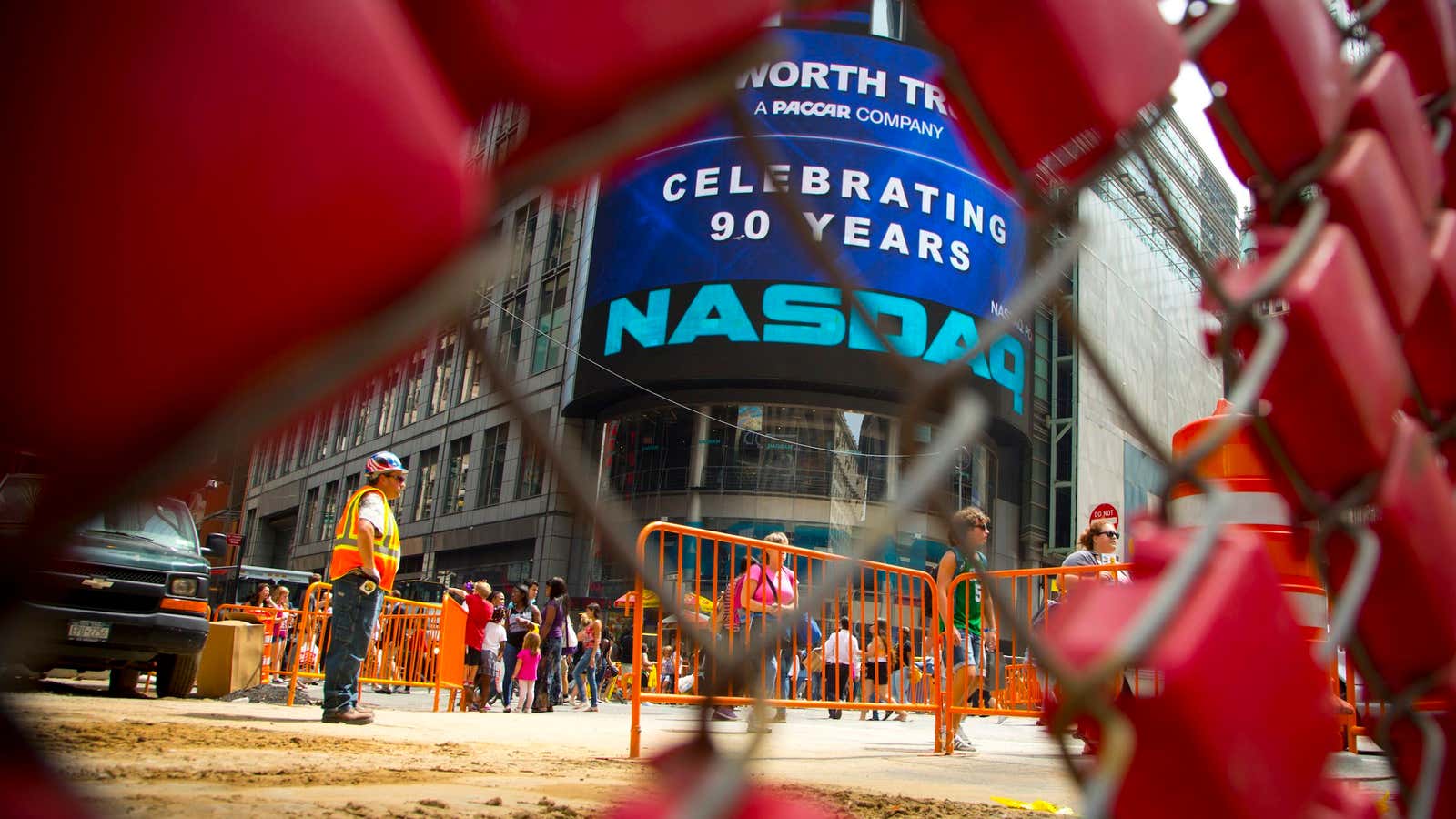


Sure, there’s a lot of action in the tech space right now. There was Facebook’s $19-billion purchase of the messaging company WhatsApp. Just yesterday Zuckerberg & Co. acquired the virtual reality company Oculus VR for $2 billion. And, yes, there’s been a slew of recent public offerings, including today’s trading debut of King Digital Entertainment, the maker of the popular Candy Crush mobile game (which isn’t exactly crushing it). But let’s be clear. This technology market is nowhere near the bubblicious territory of the late 1990s. In fact, by a few key measures, the surge in the technology and internet space isn’t even close to the boom that peaked in 2000 when the tech-heavy Nasdaq composite touched a peak of 5,408.62. Now some argue that we are within spitting distance of those Nasdaq peaks. But yesterday the market closed at 4,234.27—around 2% up on the year, but still about 22% shy of that 5, 408 peak from 14 years ago. Nor are we anywhere near the pace of tech IPOs seen during those manic days. In fact, between 1999 and 2000, a combined 794 tech execs took their companies public on either the Nasdaq or NYSE stock exchanges. By comparison, the 86 tech firms that went public during 2012 and 2013 looks relatively paltry. So far, only about 10 tech companies have gone public in 2014. Here’s a look at the trend. (As a side note, you can also see how Nasdaq’s advantage in landing tech listings has disappeared.) The IPOs that do hit the market are also more modest than they were during the tech boom. A whopping $82 billion in snazzy tech deals hit the market in 1999 and 2000, compared to just $30 billion during 2012 and 2013. So far this year, the tech IPOs that have come to market are worth about $1.6 billion.




